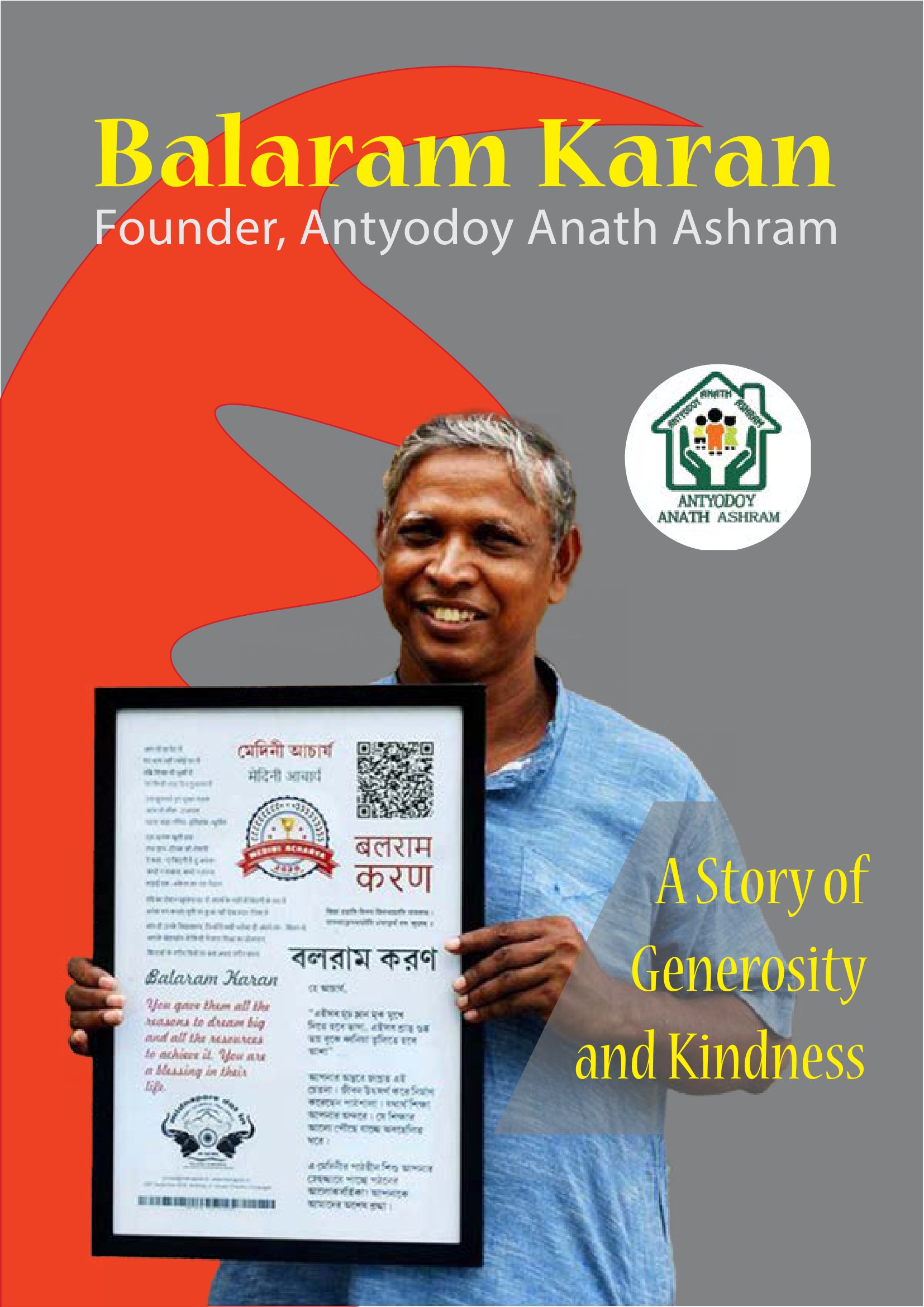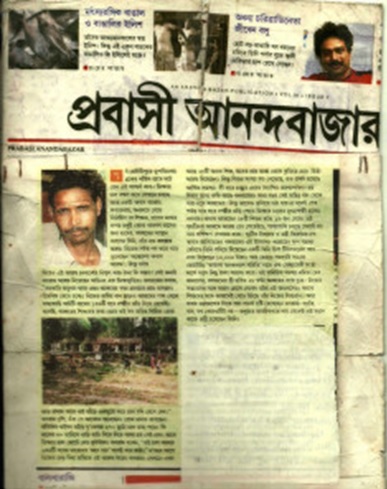
Several years ago, Balaram Karan, a resident of the remote village of Paushi near the Bengal coast, was on his way to collect a consignment for his small medical shop. He happened to come across a child fishing out leftovers from a heap of garbage, trying to salvage something edible.
He asked around and found that the child was an orphan. In a spur-of-moment decision, he took the child home. Rani, who was about nine years old at the time, became the first of many more such children to be taken in by Karan. Rani had been taken in by another family before, but village gossip was that she had been abused by the family and eventually thrown out, said Moyna, Karan’s daughter.
“I was about thirteen years old when my father brought Rani home, maybe even younger,” said Moyna
Having taken one child off the street, Karan found it difficult to justify leaving any other children he came across. Soon after Rani, he brought home a boy, who had similarly been left to fend for himself.
“After that, where ever I went…the railway station, the market…if I saw children in such dire straits, I could not leave them,” Karan said while recounting his story.
Moyna, who is 26 years old now, said that while growing up at times it was difficult to reconcile her own position in the family. “Often, I would feel unloved because no special allowances were made for me and at that age, I could not understand what my father was trying to do.”
Before he began to adopt children into his household, Karan, his wife and four children ran their household with income from his small medicine shop, and erratic earnings from agriculture. Even then, things were tight.
He kept bringing home more children, until there were over 20. With limited resources at his disposal, taking care of so many children became a major problem for Karan. Eventually his extended family refused to stand for it any longer and withdrew whatever support they had offered him thus far.
“I had to fight with my brothers, my family. The dispute turned out to be irreconcilable. Eventually, my wife and I had to leave with all the children and find refuge in an ashram. I was ruined. To get by, I sold my shop and whatever little land I had,” Karan said.
Despite the hardship, he remained adamant that the children would not go back to the street.
“I was reduced to a beggar.”
Moyna was sent to an old woman in Kolkata at the time, as her ward and though she was not happy, Karan refused to have her back. Moyna returned to the village only when the woman died.
Pushed to a corner, Karan decided to appeal to all the mothers in his village for help.
“I pleaded with them to spare a fist full of rice for the children. Not much. But I hoped that if everyone gave a little each, we would be alright.”
To his surprise, he received a warm response from the villagers. A system grew into place, where he would place an earthen pot in each willing house. The villagers would put whatever they could spare in the pot and he would collect them every day.

In 2004, the Ananda Bazar Patrika heard of Karan, the poor man with a makeshift orphanage that ran on the goodwill of some villagers. They wrote a feature on him, which reappeared in the Prabasi Ananda Bazar, a journal meant for Bengali readers abroad.
The story cuts to Germany at this point. In his twilight years, Bimal Roy, a man of considerable wealth and eccentricity, woke up in his bed one night to find that his son has a knife to his throat. He managed to disarm his son and in an explosive (if completely justifiable) rage, disowned him. Suspecting a family conspiracy, he decided not to leave any money to his family.
By a happy accident, Roy came across Karan’s story in the Prabasi Ananda Bazar. Identifying Karan’s cause as a good use for his money, Roy came to Kolkata and set on a search for Karan, who arrived in the city to meet his to-be benefactor a few days later. Roy was determined to ensure the money would be put to good use, so Karan was kept in the dark about the purpose of the meeting.
Karan’s interview with Roy was a long one. Roy pressed him and tried to discover loopholes in his story. But eventually, Roy was satisfied. He told Karan that he would provide the money to institutionalise his informal orphanage, help to construct a building and other infrastructure that such a facility would require.
Today, Antyodoy Anath Ashram has 170 children. Karan has, over the years, found patronage from a variety of unlikely sources and is trying to make the facility a self-sustaining one. Moyna is exceedingly invested in running the orphanage and hopes to take over from her father. The orphanage also has a primary school, which children from the village can attend for free.
Counsellors and mentors speak to the children often to supplement what they learn at school. “Education is important. But I try to raise my children to become good human beings. I think that is more important,” Karan said.